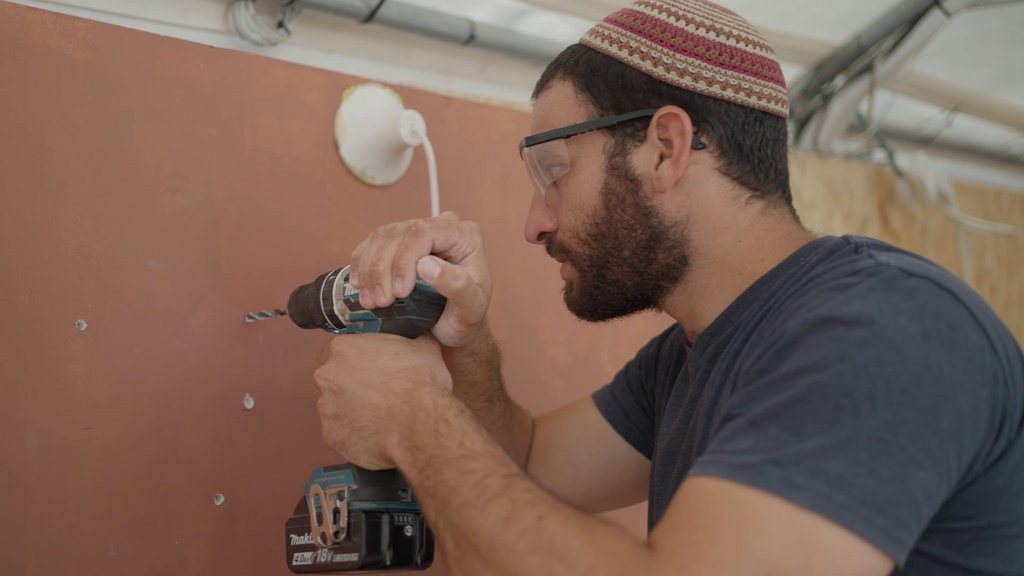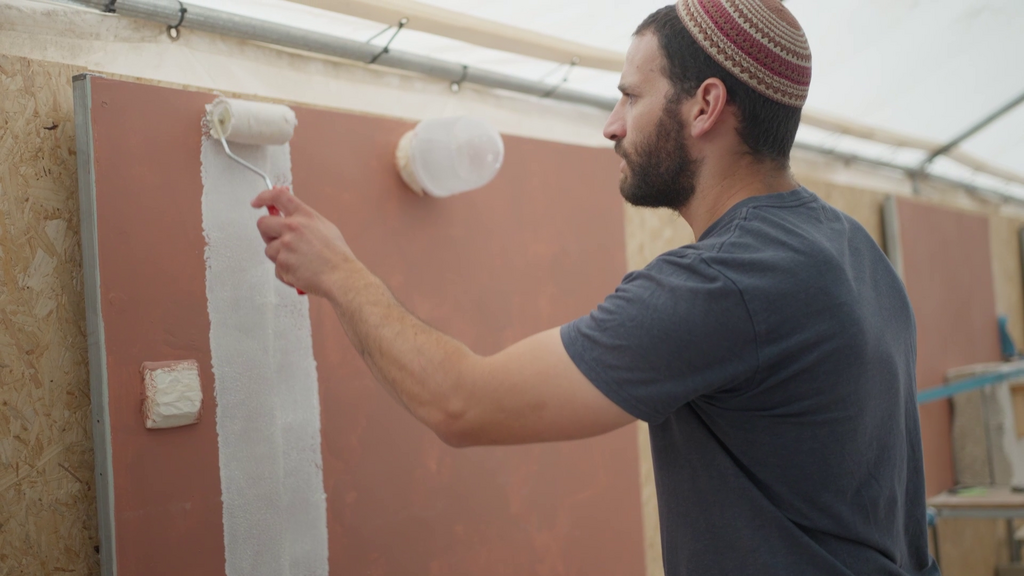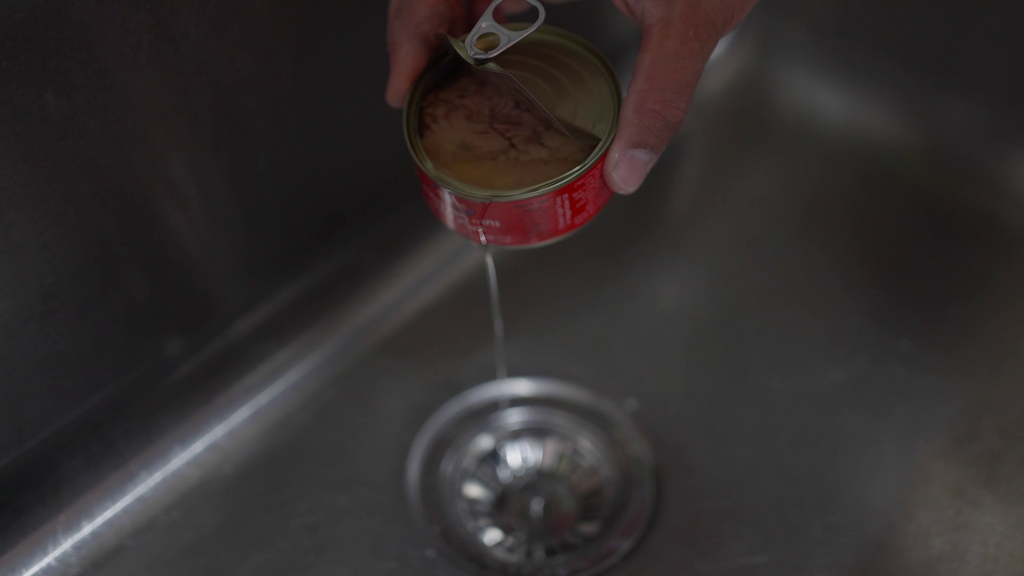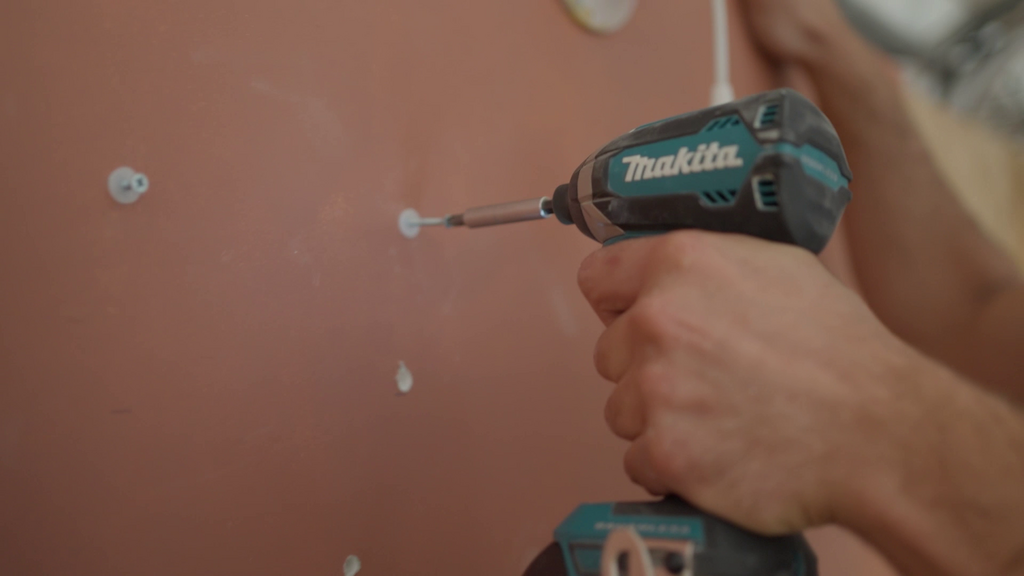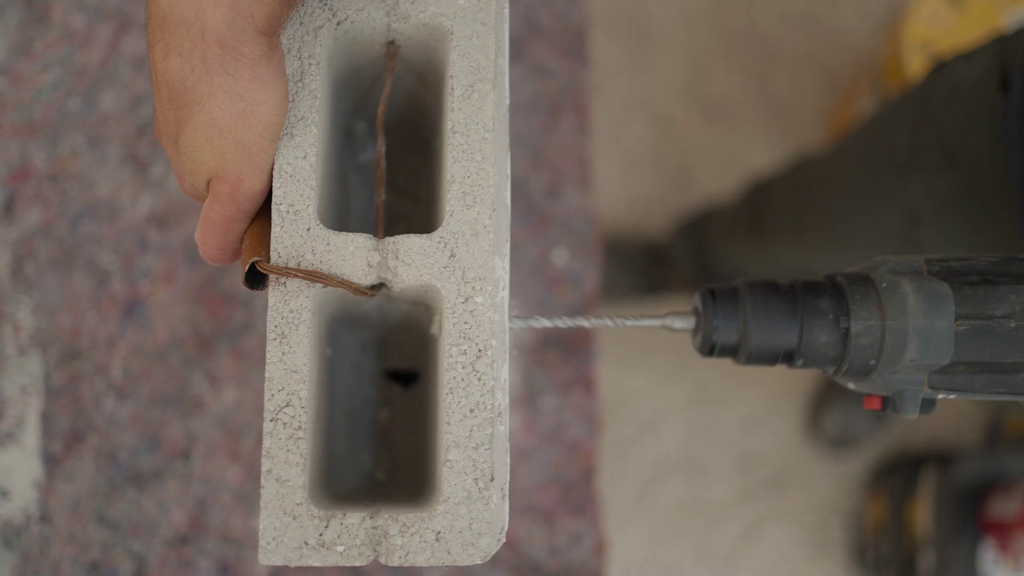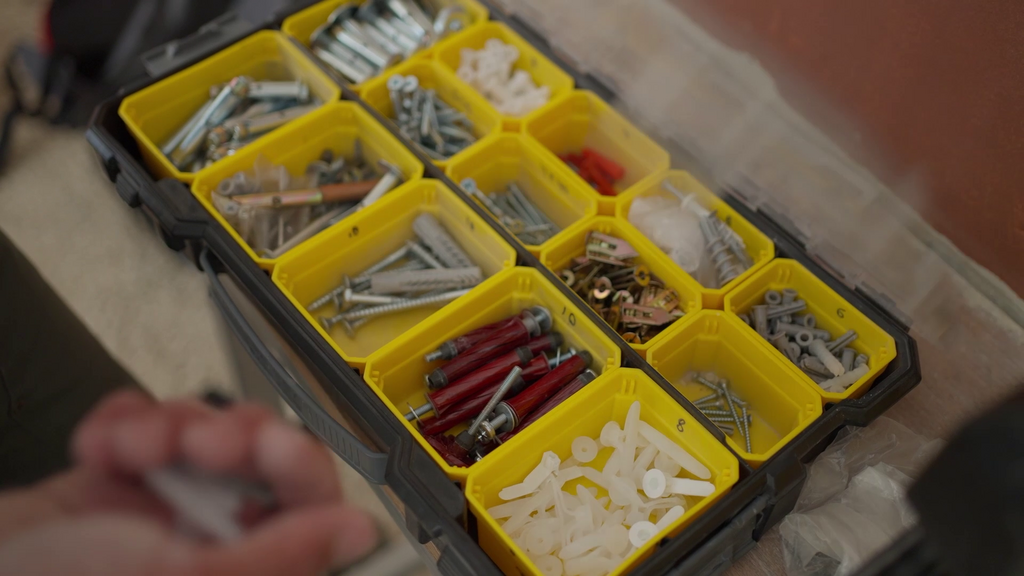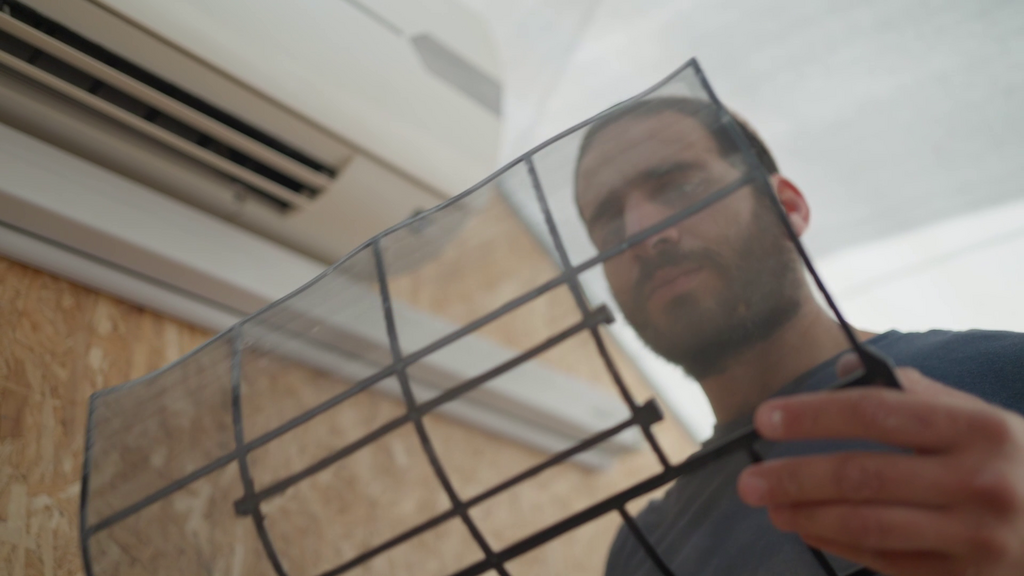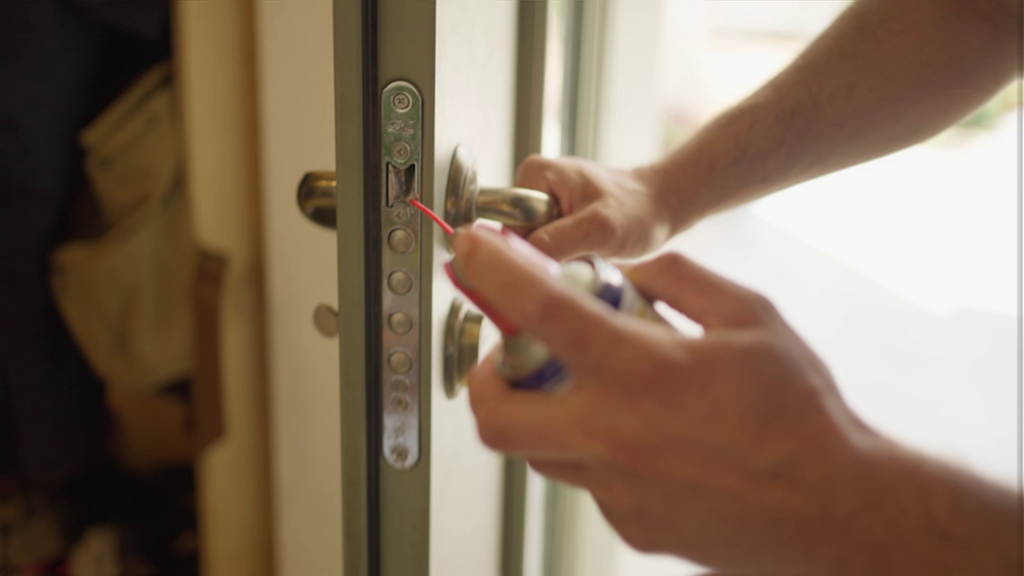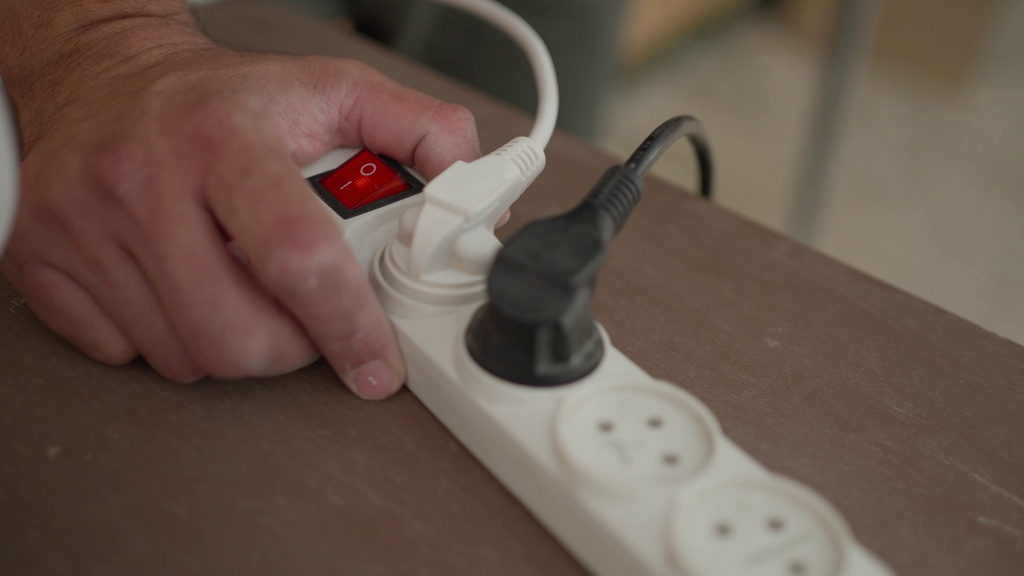Getting your Trinity Audio player ready...
Many people decide to take on simple home renovations themselves, from painting and wall repairs to hanging pictures and shelves and even drilling. In general, the do-it-yourself (DIY) philosophy is becoming more and more popular.
More stories:
We met Shmuel Saban, the owner of an Israeli renovation school where men and women learn how to maintain their homes on their own. Saban shared how we can make things easier for ourselves by following some important rules he always abides by when it comes to home maintenance.
Never paint over mold on the wall
"Many people see mold in their homes and want to cover it up, so they paint over it to make the house look better,” explains Saban, "In practice, this action doesn't get rid of the mold, which is a living fungus that will simply grow through the paint and continue to spread.
What you need to do is destroy the fungus using appropriate materials for mold treatment, or even use a cloth with a disinfectant, and only then you can paint over it."
Never paint the wall without diluting the paint
The paint we buy in stores to paint the wall is relatively thick compared to what we want to achieve in the final result.
Therefore, Saban explains that it is advisable to add 12-20% water content according to the manufacturer's instructions, and then the paint will spread much better on the wall, its texture will appear smooth, and its thickness will be in line with what is needed.
"If we don't dilute the paint, brush marks may be visible and the paint can crack because the layer is too thick," Saban says.
Never pour paint back into the paint can
Before painting a wall, it’s necessary to pour the desired amount of paint from the bucket into another container and not return any leftovers back into the can after use. Also, don’t put tools such as putty knives or brushes back into the paint bucket.
"The paint is exposed to the air with all of its bacteria and impurities, so if we return the leftovers to the can, we essentially contaminate the entire can," says Saban. "So we should take out the amount of material we need, and if we have leftovers, we simply pour or discard them.”
Never pour oil, soft wipes or hair into the sewage system
"People tend to pour used oil from tuna cans, frying oil and any cooking oil into the sink or drain in the kitchen, and they don't understand the dramatic implications this action has," Saban says.
"The oil in the sewage system is like the fat in our bodies that clogs arteries," he adds. "The fat accumulates on the sewage pipe’s edge, hardens and becomes like concrete. Moreover, it sticks to everything and absorbs additional dirt." So, what should we do? Simply pour the used oil into a bag and throw it in the trash.
Never drill into a wall without knowing where the electrical and water lines are
"Before we start drilling, it’s important to examine which infrastructure passes through the wall, such as electrical wires and water lines," Saban adds. He also advises not to forget that such systems usually also connect to those of neighbors.
"The electricity will pass through the wall if there is an outlet/box/light fixture or a switch there, so if you see a switch, don’t drill into a vertical line stretching from it,” he says. In addition, Saban recommends doing the same for water lines and pipes.
Never drill into block walls with a hammer drill
Saban explains that there are several types of drills: screwdriver, drill, hammer drill and rotary hammer drill, all of which are drilling devices. The hammer drill is a large drill that has a hammering option.
"Imagine a small hammer inside the drill that hits and strikes it while it works, and that's how it carves while drilling. This device has several operating modes," Saban explains.
A very common mistake people make is drilling into block walls with a hammer drill, thus damaging the block from the inside. The drill breaks inward when drilling, and from the outside, it may look fine, but in reality, you can’t tell that the block is destroyed from the inside.
"Whatever you hang there won’t hold," he says. “So, when drilling into block walls, use a hammer drill without a chisel, otherwise, you’ll significantly weaken the grip on the wall."
Never use regular wall anchors in drywall, and vice versa
Saban explains that each type of wall has its own suitable anchor. Drywall has a special anchor. According to him, using the wrong anchor won't cause damage, but it simply won't hold anything.
He adds that drywall anchors typically won't penetrate a regular wall. "Drywall is very soft, so it requires anchors that are suitable for it. If we use regular wall anchors in drywall, it won't cause damage, but it’ll easily come off the wall. And if we use drywall anchors in a regular wall, they won’t work at all,” he adds.
Never leave air conditioner filters dirty
Saban explains that the air conditioner filter absorbs air from the room, and it catches and accumulates a significant layer of dust. He recommends cleaning not only the filter but also the air conditioner itself because of moisture buildup, creating a favorable environment for fungi and other pollutants to contaminate the air.
It’s important to clean and rinse the air conditioner filters regularly, let them dry and then put them back. "This will also improve the air conditioner's performance and reduce electricity consumption, which is important for our health," Saban says.
Never lubricate the door cylinder
According to Saban, people think they can lubricate the cylinder of the door lock or the keyhole if it’s stuck or jammed. However, unlike the door hinges, you should not lubricate the lock cylinder because it only damages it.
"If you lubricate a problematic cylinder, you’re wearing it and getting it stuck," he explains. "If it starts making noise and getting stuck, we should replace it.”
Never connect power-hungry devices to a power strip
Power strips take the existing electrical circuit in an outlet and divide its electricity. "When we connect energy-consuming devices like a kettle, toaster, oven, washing machine and similar appliances to a power strip, they’ll consume a lot of electricity, and the power strip may burn," explains Saban.
According to him, the high current passes through the power strip, causing it to overload, which can lead to electrical sparks due to an overload on the power strip’s system. In less dangerous cases, it's simply not healthy for the electrical appliances, but in extreme cases, it can even cause a fire due to excessive heating.
Never use an extension cord as a permanent solution
Saban explains that an extension cord isn’t suitable for permanent use. "These cables have much less durability. Our electrical cables are designed to work at temperatures up to 90 degrees Celsius, while extension cords are designed for temperatures up to 70 degrees Celsius," he says.
In addition, it’s important to note that the extension cord doesn’t deliver the same electrical current as an outlet. When working with electricity, it is preferable to avoid using portable connections, meaning that power outlets should be fixed and not subject to twisting or tearing.
Never neglect to deal with leaks or moisture
Saban explains that if we neglect to address moisture issues immediately, they will spread and cause the proliferation of fungi on walls, floors, other rooms and more, resulting in more damage than we initially anticipated.
So if you discover a leak, it’s necessary to deal with it promptly; otherwise, the damage will be much greater in the long run.



